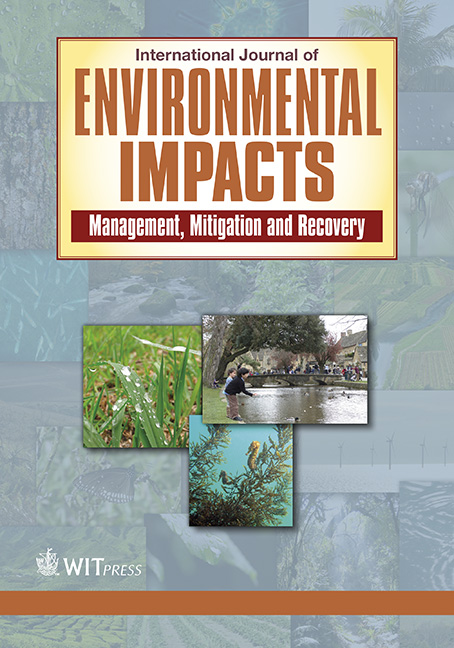Offshore oil spill response base and management of deepwater/offshore oil resources in the Nigerian marine waters: a review
Price
Free (open access)
Volume
Volume 5 (2022), Issue 1
Pages
16
Page Range
65 - 81
Paper DOI
10.2495/EI-V5-N1-65-81
Copyright
WIT Press
Author(s)
Josiah C. Ogbuka, Emmanuel E. Nwanmuoh, Anastasia I. Ogbo and Fred E. Achoru
Abstract
Oil contributes to about 25% of GDP, 95% of annual foreign revenue and 65% of Nigeria’s annual budgetary projections. Nigerian territorial waters and exclusive economic zone harbor over 30 offshore oil fields, 620 deepwater and offshore oil wells, leading to widespread oil exploration, exploitation and production activities. The recent widespread offshore and deepwater oil activities expose the marine waters and their ecosystems to potential risks of diverse degrees of oil spills which degrade the marine ecosystem services and function, as well as huge socio-economic loss to the nation. For instance, in 2011, a well blowout at the Shell Nigeria Petroleum Company Bonga Oilfield spilled about 40,000 barrels of oil into the Atlantic Ocean, which impacted coastal settlements, ground and surface water, fish- ing grounds and farmlands. This paper reports on the theoretical basis for Offshore Oil Spill Response Base in the context of published literature (secondary sources), conventions and conference/workshop resolutions, as well as reflecting on the inadequacies of the existing regulations to sufficiently address pollution in Nigerian marine waters and the Gulf of Guinea. Our study reveals the dominance of studies on causes, impacts, risks, vulnerability, prevention and remediation of oil spills, especially in onshore areas, with paucity of research on offshore oil spill preparedness, prevention, control and response, especially in developing contexts like Nigeria. This paper also outlines the basis for integrating Offshore Oil Spill Response Base into the management strategies for deepwater oil development to significantly minimize/respond to offshore oil spills, which will contribute to environmental sustainability of the Niger-Delta and the Guinea Current Large Marine Ecosystem towards realizing sustainable development goals 14 targets.
Keywords
Atlantic Ocean, Bonga Oilfield, GCLME, Gulf of Guinea, Niger-Delta, oil spills, sustainable development goal 14, territorial/marine environment




